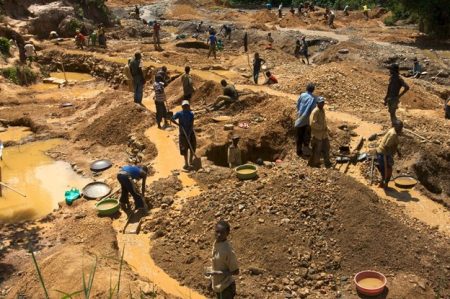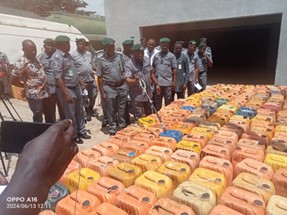
…within the context of Nigeria’s environment & oil/gas politics
11 December 2016, Sweetcrude, Port Harcourt — Nobody knows who authored the piece that is bandied among Africans in which the African persona is reduced to sub-human levels. Some posts claim it was a speech given by Donald Trump during his campaigns for the presidency while others claim it was a speech by Bibi Netanyahu to the Knesset. Personally, I think it looks like a speech credited to Pieter Botha, former president of South Africa in one of his famous speeches justifying Apartheid. Whoever the author is he has evoked dangerous passions in the few Africans I have discussed the issue with. Apart from anger at being put down in such extreme terms, I have seen the birth of the kind of hate that precedes race wars and institutional racial discrimination.
In this piece, I would place before readers facts which I am not invoking to justify the classification of Africans or the justification of the piece but which I suspect inspire folks like the author of the offensive diatribe on Africans. In the Niger Delta Region of Nigeria, a theme, resource control is common to all the generations of its people, starting from the adult generation of the 1970s. The agitation for resource control is essentially a demand by the oil-rich peoples of the Niger Delta Region that all the states in the Nigerian Federation should have full authority over the resources within their domains without interference by other states or the federal government. This agitation has been on the table of political discourse since 1969 when the federal government, a military regime in 1969 enacted the Petroleum Act, divesting ownership and control of oil mineral resources in states they are found and investing same in the federal government.
In 2003, the Niger Delta people added another dimension to the agitation: they started to invade oil installations and to vandalise oil facilities to achieve the wasting of the resource as a pointer to their protest and to get some benefits from the resource. In every act of vandalism, the ecosystem of the vandals suffers destruction in dimensions too frightening to put on paper. The random acts of vandalism have now become a daily occurrence such that the rivers of the Niger Delta now consist of oil and saline water, a toxic mix with a destructive potential on the human inhabitants of the region that is worse than the impact of HIV/AIDS.
Between 1969 and 2016 the people of the Niger Delta and the federal delegates of the Nigerian State have not found common ground to avoid the billions of barrels of crude oil wasted and lost to the Nigerian economy, the deaths that have occurred from fire incidents on vandalised pipelines, attacks against oil installations and facilities, the war against the forceful acquisition of oil and gas resources and the devastation of the natural habitat of oil and gas host and operational communities.
Both sides have recorded so much loss that the argument to reach a common ground would have impressed itself on any people thinking normally. But the sabre rattling, ownership rhetoric, the actual destruction by both sides to the conflict continues. The agitators rely foolishly on an insensate consumption driven international community to moderate an end to the “appropriation” of their resources while the wily feds depend on the greed and industrial needs of the “moderators” to perpetuate an offensive and divisive policy. 47 years of conflict without an inkling of resolution.
Last week, driving into the city at about 7pm from a board meeting at Igwuruta, the outskirts of Port Harcourt, I noticed all the filling stations were closed or closing down. I drove through Eneka, entering into the long East/West Road that boasts more than ten filling stations with the hope of filling up my tank before the Eliozu Bridge. All the stations on both sides of that road were closed. I drove into the major Aba Road, hoping to get fuel between Total Filling Station at Oromerezimgbu and Mobil Filling Station at Waterlines. All closed. With desperation, I drove past my own Trans Amadi neighbourhood and went into Woji Town where I met a manager that explained to me that though I had entered into their station they could not sell to me because the “Task Force” had been alerted of their disobedience. This particular uniform closure of fuel stations was influenced by an agreement by marketers to achieve some goal. Many other times, the petroleum and natural gas workers unions, tanker driver unions, importers associations and surprise, surprise, even the Federal Government blackmails the masses with scarcity to score some point. All these occur within the context of an unimaginable domino effect on a human society. Africans must accept the responsibility that the inspiration non-Africans have of the African person and society is the true reflection of our daily existence.



